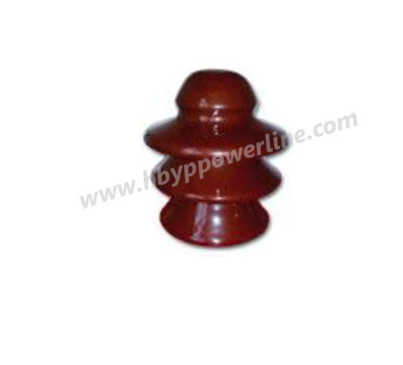What are the advantages of composite insulators?
Composite insulators, also known as polymer insulators, offer several advantages over traditional insulators made of materials like porcelain or glass. These advantages contribute to their increasing popularity in various electrical and utility applications. Here are some key advantages of composite insulators:
Lightweight:
Composite insulators are significantly lighter than their traditional counterparts. The use of lightweight materials, such as fiberglass reinforced with polymer, makes handling, transportation, and installation easier, reducing the overall weight on support structures.
High Mechanical Strength:
Composite insulators exhibit high mechanical strength and durability. The materials used in their construction provide resistance to mechanical stresses, such as wind, vibrations, and impacts, making them suitable for challenging environmental conditions.
Excellent Pollution Performance:
Composite insulators have superior pollution performance compared to porcelain or glass insulators. The hydrophobic nature of the polymer surface helps repel contaminants, reducing the risk of surface pollution flashovers, particularly in areas with high pollution levels.
Reduced Brittle Failure:
Unlike traditional insulators, which may be prone to brittle failure, composite insulators are less likely to shatter upon impact. The flexible and resilient nature of the polymer materials allows them to absorb energy, minimizing the risk of catastrophic failure.

Corrosion Resistance:
Composite insulators are resistant to corrosion, making them suitable for use in corrosive environments or areas with high humidity. This corrosion resistance contributes to their longer service life and reduced maintenance requirements.
Ease of Installation:
The lightweight and design flexibility of composite insulators make them easier to install, especially in locations with limited access or challenging terrain. Their reduced weight simplifies installation procedures and reduces the need for heavy equipment.
Reduced Maintenance Costs:
Composite insulators require less maintenance compared to traditional insulators. Their resistance to pollution, corrosion, and mechanical stresses contributes to a longer service life, reducing the frequency of inspections and replacements.
Design Flexibility:
The manufacturing process of composite insulators allows for greater design flexibility. This flexibility enables the production of powerline insulators with specific shapes, sizes, and electrical characteristics, catering to the requirements of different applications and voltage levels.
Good Tracking and Erosion Resistance:
Composite insulators exhibit good resistance to tracking and erosion, enhancing their performance in polluted environments. This resistance helps maintain the insulating properties of the material even when subjected to surface contamination.
High Dielectric Strength:
Composite insulators maintain high dielectric strength, ensuring effective electrical insulation. This property is crucial for preventing electrical breakdown and flashovers in power transmission and distribution systems.
Long Service Life:
Composite insulators offer a longer service life compared to traditional insulators. Their resistance to environmental factors and aging contributes to extended reliability and performance over time.
Environmentally Friendly:
The materials used in composite insulators are often recyclable and environmentally friendly. This aligns with sustainable practices and considerations for reducing the environmental impact of electrical infrastructure.
The advantages of composite insulators make them a preferred choice in a wide range of applications, including power transmission lines, distribution networks, and railway electrification. Their lightweight, durable, and environmentally friendly characteristics contribute to improved reliability and efficiency in electrical systems.
- 0



